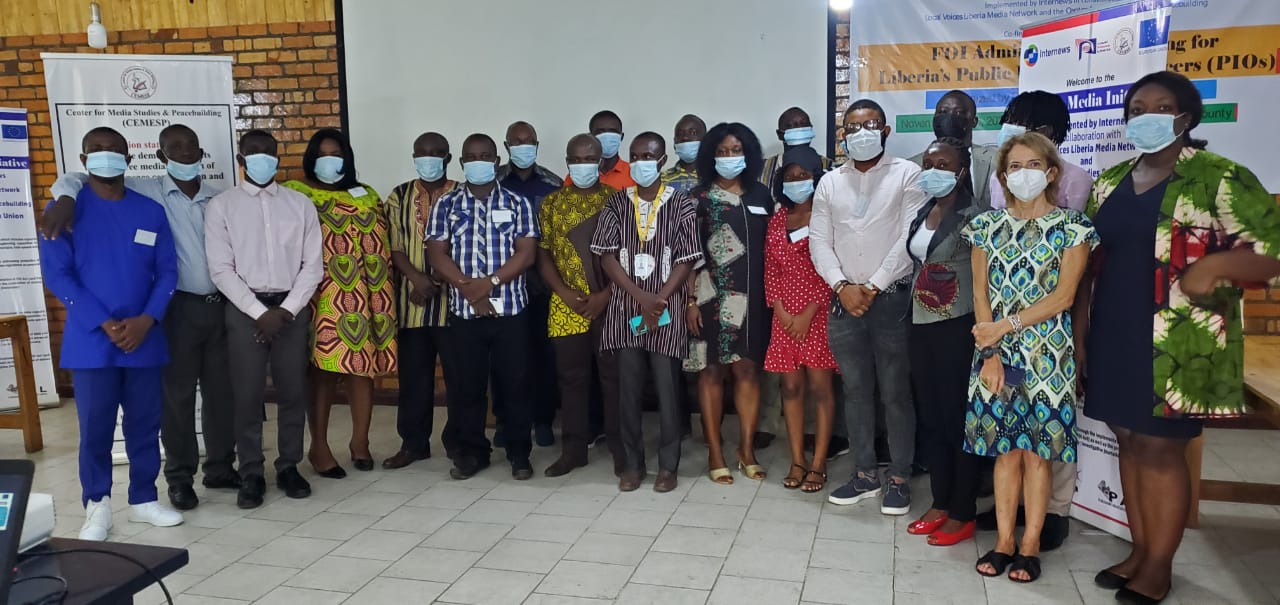Stakeholder groups led by the International Press Centre (IPC), MFWA’s country partner in Nigeria, have called on lawmakers to include a robust administrative sanctions framework in the ongoing amendments to Nigeria’s Freedom of Information (FOI) Act. The proposed regime would create clear, non-criminal procedures for enforcing non-compliance and reduce the current overreliance on the courts.
The call emerged from a two-day stakeholders’ technical session on the FOI Amendment Bills convened by IPC in collaboration with the Policy and Legal Advocacy Centre (PLAC) and YIAGA Africa, with support from the European Union, on Monday, July 28 and Tuesday, July 29, 2025, in Abuja.
Participants included representatives of the FOI Unit of the Federal Ministry of Justice and Office of the Attorney-General of the Federation, the National Assembly, the Nigerian Law Reform Commission, civil society groups, media professional bodies and organisations, the legal community, and academia.
According to the communiqué issued at the close of the meeting, an independent, administrative enforcement mechanism would accelerate the resolution of access disputes: by avoiding protracted court processes, cases of non-compliance could be determined more swiftly and consistently.
The stakeholders noted that while the FOI Act provides a framework for access to information, implementation and compliance have lagged over the past 14 years. Despite provisions that define wrongful denial of access as an offence, there have been no recorded sanctions against public institutions or officials, a gap that may be fuelling persistent non-compliance.
Other weaknesses include the absence of an independent oversight body, the lack of administrative penalties, and an overdependence on criminal provisions and complex judicial procedures.
The meeting also welcomed two Private Members’ Bills in the House of Representatives aimed at improving compliance with annual reporting by public institutions. However, participants cautioned that adding new criminal penalties could further entrench reliance on the courts and risk criminalising administrative failures.
The participants highlighted a Supreme Court judgment of April 11, 2025, which clarified that the FOI Act applies to records and information held by state-level public institutions. While this expands the Act’s reach to all 36 states and 774 local governments, it also underscores the capacity constraints facing the Attorney-General of the Federation in overseeing nationwide compliance and enforcing the judgment.
Key recommendations
The communiqué proposed several measures to strengthen FOI implementation and oversight:
- Dedicated FOI budgets in public institutions: Establish specific budget lines and allocate funds for FOI implementation, including regular training for officials (especially FOI Desk Officers), digitisation of records, and preparation, publication, submission, and dissemination of annual FOI reports to the Attorney-General and the public.
- Resource the central oversight function: Provide express resources to the Federal Ministry of Justice and the Office of the Attorney-General of the Federation to oversee, monitor, and ensure compliance across all public institutions—while also enabling these offices to meet their own FOI obligations.
- Improve annual implementation reports: Enhance the Attorney-General’s yearly reports to the National Assembly by naming non-compliant institutions, recommending appropriate administrative sanctions for persistent breaches, and offering data-driven analysis of trends in requests, usage, compliance, and non-compliance.
Meeting highlights
The session was opened by Mr. Lanre Arogundade, Executive Director of IPC, followed by goodwill messages from Dr. Akin Akingbulu (Centre for Media and Society, CEMESO), Ms. Nkiru Uzodi (PLAC), and Mr. Godwin Garuba, Head of the FOI Unit at the Federal Ministry of Justice, who represented the Attorney-General and Minister of Justice.
Mr. Arogundade presented an overview of the Amendment Bills during the first plenary, after which Mr. Edetaen Ojo of Media Rights Agenda outlined gaps in the current FOI Act and proposed amendments to strengthen enforcement and compliance.






